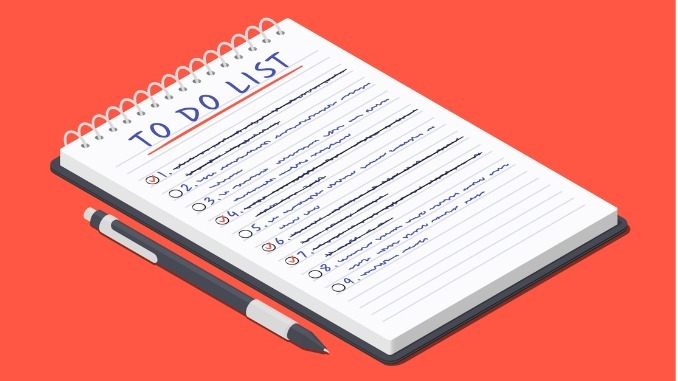
In the last decade, absolutely everyone has become obsessed with to-do lists. One for house and home, one for personal development, multiple for work… which has Laura Williams wondering…does it actually make things any easier?
Some people seem to whizz through life productively knowing exactly what’s what, while others (like me) feel like they’re trying to grab hold of anything solid in the midst of a to-do list tornado!
So how can we make our to-do lists work for us instead of against us?
I’ve had to re-evaluate my own to-do lists and systems since stepping into my role at EdExec because sometimes your situation changes, and your systems need to pivot with you. And that’s okay, but if your to-do lists are increasing instead of decreasing your stress levels, then it’s time to regear.
You’re only as strong as your weakest link
While the role of SBL is often singular, you do work alongside a lot of other people. This means that it sometimes doesn’t matter how organised and efficient you are, as others may not always keep you up to date or let you know when things go awry!
Helping others to understand your systems, the importance of them and how and when things need to be reported, is an essential part of staying sane and getting the full picture of what needs to happen and when.
The team that to-dos together…
Building on the first tip, make sure you have a central to-do list system for all team tasks. You can absolutely keep a separate list on paper or digitally for to-dos that are yours alone, but if a project involves numerous people, you all need to see where the others are at. If you use a system like Monday (my new favourite work planner), you can have everyone’s tasks in one place. People can see how things are progressing and identify where may be capacity for support.
The if/then secret
Ever looked at your to-do list and frozen in horror thinking, “I have to do all this?!” Sometimes, we can overwhelm ourselves with tasks upon tasks when they aren’t all actionable straight away.
Most tasks aren’t singular tasks. Even when you write them as such. For example, when I pop “Write an article on reducing stress with to-do lists” on my list, it’s not actually that simple. I need to research, draft, edit and submit ahead of the deadline. And as Executive Editor, I need to be aware of how this fits into a bigger piece of work; collating and prepping all content ready for publication!
So how is this helpful? It’s helpful because once you understand the components that make up a task, you can create if/then scenarios, so you are prepared with contingency measures. In an SBL setting, this might mean that if all scheduled pieces of newsletter content arrive before the 20th then the newsletter will be ready to go. But, if the Head needs to share some additional content i.e. an important announcement, then one those pieces will need to be bumped to the next issue. If neither of those things happens i.e. you don’t receive all your newsletter content and there isn’t anything additional from the Head, then you need some ‘back up content’ that can be added to the newsletter to plug the gap. By preparing that back up content in advance, you’ll never come unstuck!
Prioritise (no, actually!)
The word priority is derived from the Latin prioritas, meaning “first in rank, order, or dignity.” That means that you can only truly have one priority at a time, so work with that! If you find yourself frozen at the thought of all the things you’ve got to do, look at your to-do list, pick out THE most urgent thing that you can do right now that will help you move things forward.
Grab a post it, write it down, stick it on your computer and do that thing. Don’t look at your list again until it’s done. Then rinse and repeat, moving through your list systematically.
Your to-do list should not be a weight that you find yourself permanently shackled to, it should be a tool to help you identify what you need to do and keep everything moving forward at pace.
Shift your mindset
One of my SBL mantras is ‘the to-do list is never done’ so rather than setting yourself the impossible task of ticking everything off, keep another list – of your achievements. The tasks themselves are a means to an end. What you achieve in your role, the impact that you have on children’s lives, the way that you solve problems, your ninja crisis-management skills… those are what you should be tracking. Those are the measure of your success.
Got a great tip about to-do lists? Share it on social media with us!


Be the first to comment